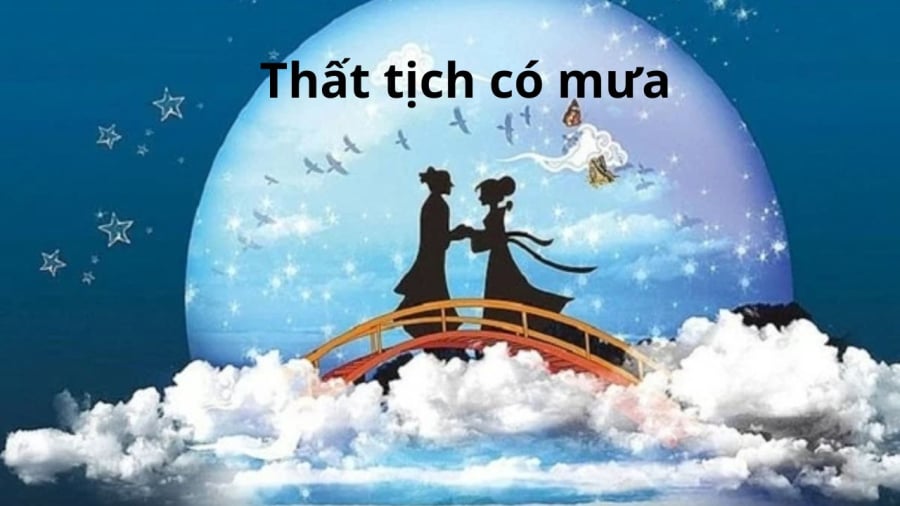The Seventh Night Festival, or Thất Tịch, falls on the seventh day of the seventh lunar month each year. Legend has it that this is the day when Ngưu Lang (the cowherd) and Chức Nữ (the weaver girl) reunite after a year of separation.
In East Asian culture, the Seventh Night Festival is considered a romantic holiday. It is said that the day is often marked by rain.
Why does it rain on the Seventh Night Festival?
According to the legend, it is the day when the cowherd and the weaver girl meet. Their tears of joy at seeing each other, only to be followed by the sorrow of imminent separation, fall as rain. The couple is only allowed to meet once a year, and on this day, crows form a bridge, called Ô Thước, to help them cross the Milky Way and be together.

Red bean dessert, believed to bring good luck in love.
It is said that if two people in love gaze upon the stars of the cowherd and the weaver girl together on this night, their love will be forever fulfilled.
Celebrating Love on the Seventh Night Festival:
– Eat red bean dessert for good luck in love: Single people eat this dessert in the hope of finding their soulmate, while couples consume it to strengthen their bond.
– Visit temples for love blessings: Many people flock to temples renowned for granting wishes for happy and fortunate marriages.
– Exchange gifts with loved ones: This gesture symbolizes your commitment and desire to stay together for the long haul.
Despite being a festival celebrating love, the Seventh Night is considered inauspicious for weddings. The tragic love story of the cowherd and the weaver girl, who are only allowed to meet briefly once a year, casts a somber tone on the day. No one wants their marriage to face similar challenges and tears of separation. Additionally, the seventh lunar month, with its frequent rains, is generally not considered an ideal time for major life events like weddings or house construction.
What is the Qixi Festival? When is it in 2023? Understanding the Significance of this Romantic Chinese Holiday
The Seventh Night, or Qi Xi, falls on the seventh day of the seventh lunar month each year and is often marked by the romantic Weaving Maid and Cowherd story. In Eastern culture, this day is akin to a Eastern Valentine’s Day or a love festival. So, what is the Seventh Night, and why is it so significant?
“45 Heartfelt Messages for the Qixi Festival: Wishing You a Sky Full of Love”
Valentine’s Day in Asia, also known as the Qixi Festival, originates from the legendary tale of the Cowherd and Weaver Girl. This romantic tale has inspired generations to celebrate love and affection. This year, let’s embrace the spirit of Qixi by sending heartfelt wishes to our loved ones and spreading the essence of this enchanting legend.
The Rainy Season’s Blues: 40+ Sentimental Status Updates for a Nostalgic July
The 7th of July marks the romantic reunion of the Cowherd and Weaver Girl in the Qixi Festival, a celebration steeped in legend and tradition. As the monsoon rains fall, encapsulating the essence of this emotional reunion, we invite you to immerse yourself in the poignant beauty of the season through our thoughtfully curated collection of July rain status updates.







































